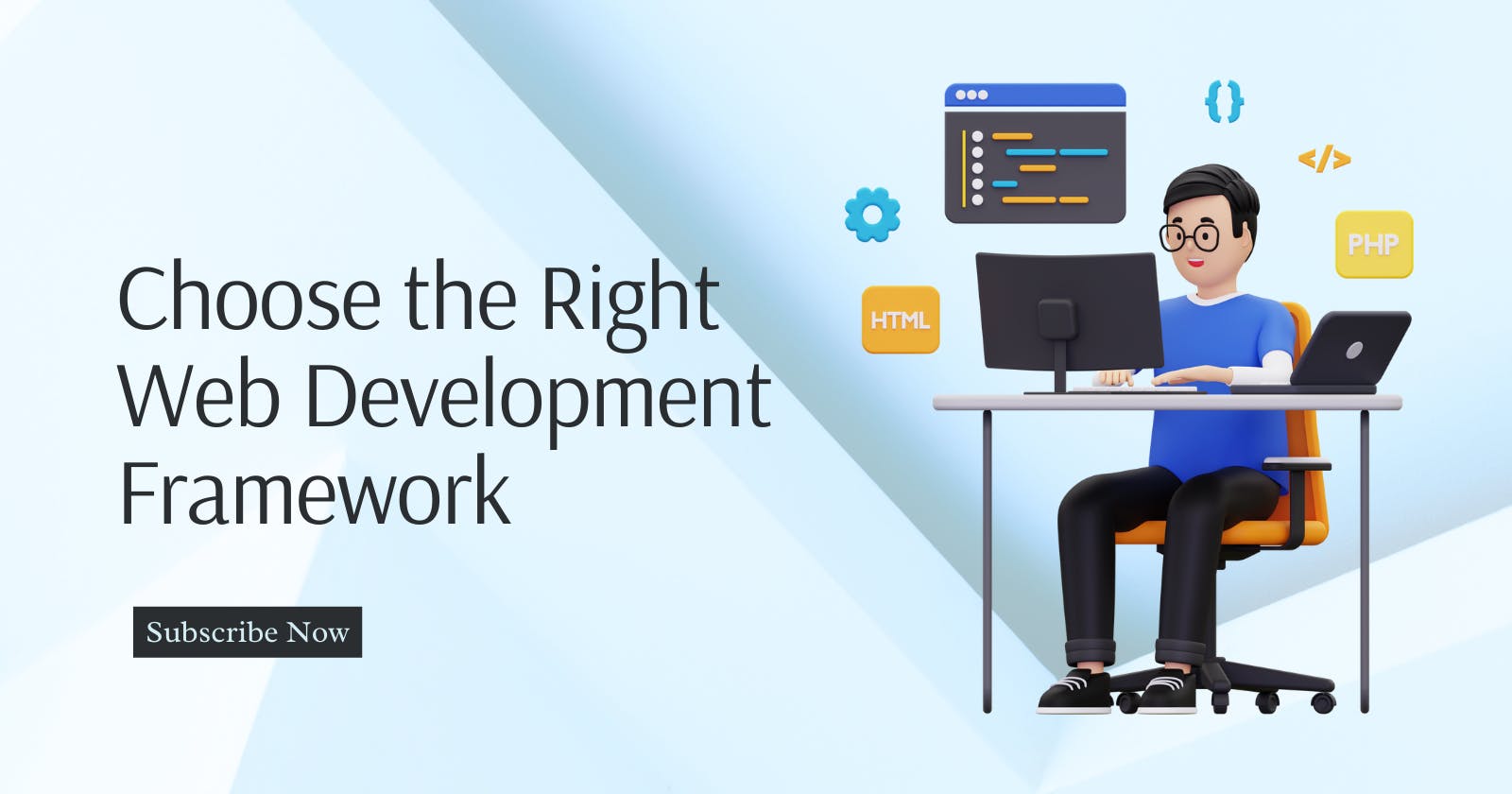Are you a beginner in web development, eager to embark on your first project? Congratulations! You're about to dive into a dynamic and ever-evolving field that offers endless opportunities.
However, before you start coding, there's a crucial decision to make: choosing the right web development framework.
In this guide, I'll walk you through the essential considerations and provide you with valuable insights to help you make an informed decision.
Understanding Web Development Frameworks
What is a Web Development Framework?
A web development framework is a pre-built structure that simplifies and streamlines the web development process. It consists of a set of tools, libraries, and best practices that enable developers to create web applications efficiently.
Factors to Consider as a Beginner
1. Project Requirements
What kind of website or web application are you building? What features and functionality do you need? Once you have a good understanding of your project requirements, you can start to narrow down your choices of frameworks.
Consider factors such as:
Project scope
Budget constraints
Expected user traffic
Desired features and functionalities
2. Your skill level
How much experience do you have with web development? Some frameworks are more beginner-friendly than others.
If you are a complete beginner, you may want to choose a framework that is known for being easy to learn and use.
3. Programming Language
Frameworks are often associated with specific programming languages.
For beginners, it's advisable to choose a framework that aligns with your familiarity or interest in a particular language. Common options include:
JavaScript (React, Angular, Vue.js)
Python (Django, Flask)
Ruby (Ruby on Rails)
PHP (Laravel)
4. Learning Curve
If you are a beginner, opt for frameworks with a gentle learning curve. Steep learning curves can be frustrating and time-consuming, hindering your progress.
Look for frameworks with extensive documentation and active communities to support your learning journey.
5. Community and Support
A vibrant developer community can be a lifesaver when you encounter challenges.
Ensure that the framework you choose has an active community and ample online resources, including tutorials and forums.
A popular framework with a large community is more likely to have a long lifespan and continue to be supported and updated.
5. Scalability
Consider the future scalability of your project. Will the framework be able to accommodate growth and additional features as your project evolves?
Top Web Development Frameworks for Beginners
Now that you're armed with essential considerations, let's explore some top web development frameworks suitable for beginners:
React: This is a JavaScript library known for its simplicity and flexibility. It's excellent for building user interfaces.
Angular: A comprehensive JavaScript framework developed by Google. It provides a robust structure for large-scale applications.
Vue.js: A progressive JavaScript framework that's easy to pick up and offers great versatility.
Django: A Python framework that prioritizes simplicity and speed. Ideal for beginners looking to work with Python.
Laravel: A PHP framework that offers elegant syntax and a wide range of features.
Ruby on Rails (Ruby): Ruby on Rails is another full-stack framework that is known for its convention over configuration approach. It is a good choice for beginners who are learning Ruby and web development.
Frequently Asked Questions (FAQs)
Q1: Can I change my framework later if needed?
Yes, it's possible to switch frameworks, but it can be time-consuming. It's essential to make an informed decision from the start.
Q2: Is it necessary to learn multiple frameworks?
It's not necessary, but having a broad skill set can make you more versatile and attractive to employers.
Q3: Which framework is the most popular?
The popularity of frameworks varies by region and industry. Research job postings and trends in your area to get a better idea.
Remember that the learning process is ongoing, and you may experiment with different frameworks as you gain experience. Embrace the journey, keep coding, and watch your skills flourish.
Happy Learning!
